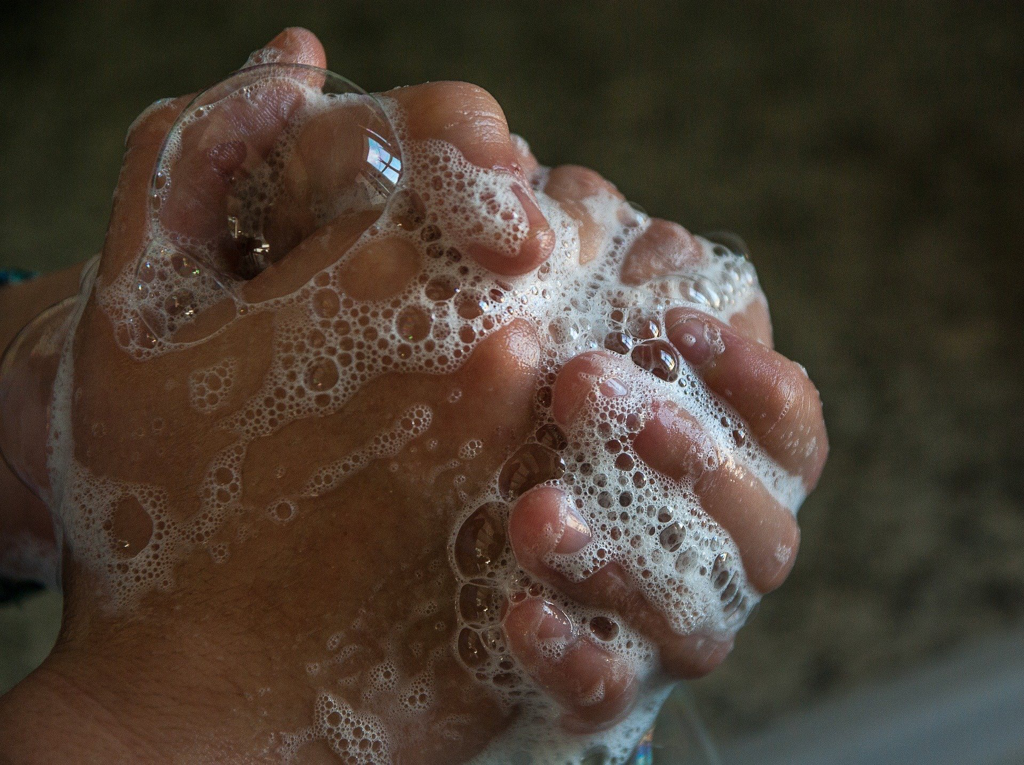|
To the mama who didn’t get to have a normal childhood,
I see you. I see your daily pain as you move through the journey of parenthood, realizing over and over again just how much you were mistreated and abused by your own caregivers. Your heart breaks almost daily for all the things you missed or had taken away from you during what was supposed to be your childhood. YOU NEED TO HEAR THIS: You didn’t deserve any of the abuse, neglect, and mistreatment that happened to you. None of it. It was the job of your caregivers to keep you safe, make you feel loved, and allow you to be a child. They failed you. You didn’t fail. None of it was your fault. You need to believe this - in your core. And now look at you - making the decision every day that the cycle of abuse will stop with you. Every day you make the active choice to give your children and yourself a better life. Each time you tell your children that you love them so they don’t go to sleep at night wondering what they have to do to earn your love - you continue to break the cycle. Each time your child feels safe coming to you for advice after they have made a mistake instead of cowering in fear - you continue to break the cycle. Each time you spend time with your children at their sporting events, extracurricular activities, or just snuggling on the sofa, reminding them that you not only love them but you LIKE them too - you continue to break the cycle. Each time you apologize and take ownership for your mistakes as a parent and clarify that your child is not responsible for your emotional well-being - you continue to break the cycle. Each time you set a boundary and protect your child from people that do not respect them or cannot be trusted - you continue to break the cycle. Each time you seek support for yourself so that you can be a better version of yourself - you continue to break the cycle. I see your efforts and I know that the work you are doing is hard. You are tired. You doubt yourself. You fight daily to prevent those negative thoughts and messages from your own childhood from coming to the surface. Keep going. Keep moving forward, building the life your children so deserve - the life you never got to have as a child. But be sure to also take time to think about all the ways your children will never have to experience what you experienced. Take time to be proud of the parent that you have chosen to be. Your children are lucky to have you as their mama. Remember that. Love yourself just as fiercely as you love your children. You deserve it. You are worthy of love and compassion - especially from yourself.
0 Comments
Everywhere we look right now we hear and see the same few words over and over again.
For many of us, this constant news cycle can be overwhelming, tapping into our already somewhat heightened levels of anxiety. For those of us that are parents, we have an added layer of concern: how do we explain the current state of affairs to our children and provide them some sense of reassurance? While there is no magic elixir, magic wand, or secret rule book, there are a few key strategies that just might help us to decrease our children’s current worries and restore a sense of hope. 1. Be Honest As with most things, children know more than we think they do and they crave honest information. As much as I want to shelter my children from hearing about the potential bad things that could happen, now that they are in school and in sports, this is simply not a reliable option. They can potentially overhear information from an adult or directly from another child in a number of locations. When parents make the decision to provide their children with honest information, there is better control over what and how specific information is shared with their children. 2. Watch What You Say On the flip side, be mindful about what you say around children, not just around your own children, but when you are out in public. You don’t want to be that person who exposes another child to information their parents had not yet shared. 3. Consider Development Children’s emotional and cognitive capacities develop significantly throughout their childhood. Before sharing details with them, take their developmental stage into consideration. A 12 year old will want and need more specific and detailed information than a 7 year old may need. Avoid going into too much detail or overwhelming them with details. Let them guide you on how much information they need. 4. Be a Role Model Let’s face it, children learn a lot from watching their parents: the good, the bad and the ugly. Show your children that feelings like anger and frustration are normal. If you are angry, name it. Be sure to not only show your child that it is normal to feel emotions but also demonstrate acceptable ways for them to express those emotions. Avoid holding it all in and expressing it only when the children are not around. Let them in on the realness of feelings. You will be providing them a solid model for how to handle and manage life’s biggest challenges to come. 5. Reassure. Reassure. Reassure. Children need to feel safe and the adults in their lives are the ones who are tasked with that monumental responsibility. I am not advocating for you to tell your children that nothing bad will happen to them or near them ever as that would be a lie. You cannot predict the future. You can, however, point out that good stuff happens far more often than the bad stuff. Remind children of all the people and systems in place to keep them safe and all the healthy people around them. Reassure them that you would never knowingly put them in a dangerous situations. Highlight safety measures that are in place in they express fear over attending a certain event. Repeat as many times as necessary. When you think you’ve said it all enough, say it one more time. 6. Limit Media Television news, social media accounts and newspapers now provide non-stop, around the clock coverage of the virus outbreak. Pictures, video, audio clips; it’s all out there and it can quickly become too much for children. Be mindful of what children may be exposed to and consider whether it is necessary. I recall hearing accounts from 9/11 that many children interpreted the frequent replay of the plane hitting the tower as multiple planes hitting multiple buildings day after day. Even if you think your children aren’t watching the news with you or don’t see the headlines on the newspaper, think about what they may overhear from the next room or what they may see when the newspaper is left casually on a kitchen table. 7. Create an Open Dialogue Children need time to process things. It is not unusual for children to need days or even weeks to develop questions or be able to express their thoughts on difficult topics. Send your child the message that you can always find time to talk with them. Many parents have success by carving out time each night around bedtime for an opportunity for children to share their experiences, thoughts, feelings and ask questions. Some parents schedule weekly one-on-one parent/child dates at a coffee shop or fast food restaurant to connect. These conversations tend to be better received when they focus on one child at a time, rather than as a family dialogue with multiple children of various developmental stages. 8. Point Out the Positive Despite what we see on a daily basis, there are lots and lots of great things that happen locally, nationally and internationally. Seek out the good stuff and share it often with your children. Local newspapers can often be a more positive source of news, particularly for children. Highlighting the positives can also go a long way to helping children feel safe. No amount of the good stuff is too much! 9. Monitor Behavioral Changes Keep a watchful eye on your child’s behavior. Changes in sleeping and eating patterns may indicate that your child is having a hard time processing some events and information. Changes such as suddenly wetting the bed again or asking to sleep in your bed could be a normal response to stressful information. Be careful not to shame your child about changes like these. Rather, give them some time, continue to provide reassurance and keep a watchful eye. If you are concerned, reach out for support. Your child’s school, their pediatrician and local child therapists are all great resources. |
ParentingParenting is one of life's greatest challenges and greatest rewards. Here we explore all aspects of parenting from pregnancy onward, highlighting both the struggles and the triumphs. Archives
July 2023
Categories
All
|
Sign Up For the Changing Perspectives Newsletter
Changing Perspectives with Jenni Brennan is supported by its audience.
When you purchase through links on this site, an affiliate commission may be earned. Learn More.
When you purchase through links on this site, an affiliate commission may be earned. Learn More.
Changing Perspectives Copyright © 2023



 RSS Feed
RSS Feed
